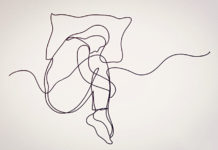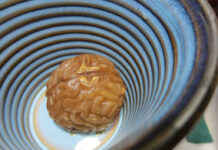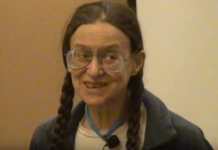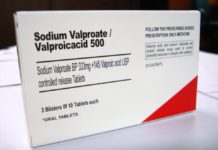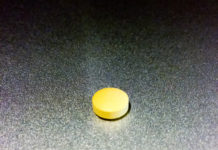Antidepressant-Induced Mania
It is generally recognized in antipsychiatry circles that antidepressant drugs induce manic or hypomanic episodes in some of the individuals who take them. Psychiatry's usual response to this is to assert that the individual must have had an underlying latent bipolar disorder that has "emerged" in response to the improvement in mood. The problem with such a notion is that it is fundamentally unverifiable.
Bipolar Diagnosis Linked to Childhood Adversity
With the ties between traumatic childhood experiences and mental health issues, should we continue to focus on biological approaches?
How the Human Stress Response Explains Away “Bipolar Disorder”
Here we'll take a look at so-called 'mania.' We'll go through the criteria for a 'manic episode' symptom by symptom so you can see how the stress response is potentially operating. There's practically nothing that happens in human minds and bodies that the stress response doesn't potentially affect.
United Nations Report Calls for Revolution in Mental Health Care
In a new report, the United Nations Special Rapporteur on the right to health, Dr. Dainius Pūras, calls for a move away from the biomedical model and “excessive use of psychotropic medicines.”
Gradual Tapering is Most Successful for Withdrawal from Antipsychotics
Mixed-Methods study explores the experiences of antipsychotic discontinuation among service users.
Duty to Warn – 14 Lies That Our Psychiatry Professors in Medical School Taught...
Revealing the false information provided about psychiatry should cause any thinking person, patient, thought-leader or politician to wonder: “how many otherwise normal or potentially curable people over the last half century of psych drug propaganda have actually been mis-labeled as mentally ill (and then mis-treated) and sent down the convoluted path of therapeutic misadventures – heading toward oblivion?”
The Good, the Bad, and the Ugly: An Infographic on Bipolar Drugs
Bipolar drug therapy is a balancing act of benefits vs. harms. Odds of attributable benefit cluster in a 15-25% band, so 75%-85% don’t see substantial benefit. Stated differently, if five people take a bipolar drug, only one is likely to see substantial improvement due to it, but all five will have side effects.
The Breaking Point
How did I become someone who could barely function? I was a high-performing sales executive ranked in the top 2% of an international business communications company. But now, after using powerful psych meds for depression and anxiety for more than a decade, I couldn’t do basic things like go to the grocery store, plan a meal, make dinner, or get together with friends.
Brain Scans Cannot Differentiate Between Mental Health Conditions
A new study analyzing over 21,000 participants found that differences in activation of brain regions in different psychological “disorders” may have been overestimated, and confirms that there is still no brain scan capable of diagnosing a mental health concern.
In Memory of Julie Greene
With deep regret, Mad in America announces another loss in our contributor community. Julie C. Greene, writer and antipsychiatry advocate, lost her battle with kidney disease on November 29 at her home in Beaver Falls, Pennsylvania. Julie had been an MIA blogger since 2014, including several pieces on the dangers of lithium.
Lithium: A Survivor’s Guide for Parents
When I was a young adult, I was misdiagnosed with bipolar disorder and placed on lithium. I am 61 years old now, living on the edge of end-stage kidney disease. If I could undo everything, by all means, I would not have taken this drug. It is not safe for anyone at any age.
The Genetics of Schizophrenia: A Left Brain Theory about a Right Brain Deficit in...
In recent months, two teams of researchers in the UK and the US published complementary findings about the epigenetic origins of schizophrenia that have scientific communities who indulge in ‘genetic conspiracy theories’ abuzz. While these results are intriguing, and no doubt involve pathbreaking research methodologies, this line of thought represents a decontextualized understanding both of the symptoms that are typically associated with schizophrenia, and their causes.
Reappropriating Bipolar Beyond Pathology
It’s still not easy for me to say, “I’m bipolar.” Know that I’m bipolar for good reason, reappropriating a painful word, so those in pain can find me—so you can find me. This is how I reappropriate a term used to strip me of my humanity, a term used to sell me counterfeit versions of reality. I refuse to let go of a label that helps me find my people, no matter how painful it is to retain.
Sinead O’Connor Announces: “I’m Not Bipolar . . . I Should Never Have Been...
Singer Sinead O'Connor announced on her website that after several "second opinions" she has learned "I do not in fact suffer from Bi Polar...
Do 5 Million Americans Really Have Bipolar Disorder?
5.7 million Americans say they have "Bipolar Disorder." These patients have been labeled, categorized, and offered an understanding of themselves as diseased, sick, and permanently broken. It is considered one of the more severe "mental illnesses," perhaps because it presents almost as an amalgamation of psychosis and depression in a particularly volatile form. In my training, I was taught to medicate these patients, often with multiple medications, and often against their will. Poetically, though, these patients — desperate to understand who they are in a system that condemns them to a life of struggle and suffering — will be vindicated by modern science.
Valproate Linked to Decreased Brain Volume in Children Diagnosed with Bipolar Disorder
Researchers find that valproate decreases brain volume in a region associated with emotion processing across all participants.
Study Explores Connections Between Diet and ‘Serious Mental Illnesses’
Study finds that individuals diagnosed with schizophrenia, bipolar disorder, and depression have diets that are more inflammatory and higher in calories.
Disability and Mood Disorders in the Age of Prozac
When I was researching Anatomy of an Epidemic and sought to track the number of people receiving a disability payment between 1987 and 2007 due to “mental illness,” I was frustrated by the lack of diagnostic clarity in the data. The Social Security Administration would list, in its annual reports on the Supplemental Security Income and Social Security Disability Insurance (SSDI) programs, the number of people receiving payment for “mental disorders,” which in turn was broken down into just two subcategories: “retardation,” and “other mental disorders.” Unfortunately, the “other mental disorders,” which was the category for those with psychiatric disorders, was not broken down into its diagnostic parts.
In Chronic Patients, Antipsychotics Have Limited Efficacy in Reducing Symptoms
A large review and meta-analysis of 167 studies across 60 years dissects placebo-controlled randomized controlled trials of antipsychotic drugs.
Making the Case Against Antidepressants in Parliament
On Wednesday, May 11, there will be an inquiry by a work group in the U.K.’s Parliament into whether increases in the prescribing of antidepressants are fueling a marked increase in disability due to anxiety and depression in the U.K. I wrote about a similar rise in disability in the United States in Anatomy of an Epidemic, and the All Party Group for Prescribed Drug Dependence, which is the Parliamentary group that organized the debate, asked me to present the case against antidepressants.
Antidepressants Worsen Rapid Cycling in Bipolar Depression
-SSRI antidepressant medications contribute to a significant worsening of emotional "rapid cycling" in patients diagnosed with bipolar disorder.
Pilot Study Adapts Open Dialogue for US Health Care
In an article for Psychiatric Services, psychiatrist Christopher Gordon and his colleagues report on the results of a one-year feasibility study attempting to implement...
Bright Light Therapy More Effective Than Medication Alone for Bipolar Depression
A new randomized, double-blind, placebo-controlled trial has found bright light therapy to be a powerful intervention that could provide an alternative to medication for people with “bipolar depression.”
People Diagnosed with Bipolar Disorder at Increased Risk for Parkinson’s
Increased Parkinson's risk could be related to lithium, antipsychotic, and antiepileptic drug use.
Existential Therapy Assists Patients Withdrawing From Psychiatric Drugs
Confronting existential anxiety through “Basal Exposure Therapy” shows promising results in people withdrawing from psychotropic drugs.







